QuestionHi,
I just read an answer by Clara stating that horses should be given 2lbs of white salt a month, 2 ounces added to feed each day. My question is 2 ounces a day times 30 is 3.75 pounds a month not 2 pounds, so which is it for horses, 2 lbs a month or 2 ounces a day. And what is the risk of over salting a horse? Thanks very much.
AnswerHi Sandra,
Thanks for your exciting question, and I say that because I'm a nutrition nerd and an adamant salt feeder so I'm excited to answer.
I can't tell you how much salt to feed your horse. I know, that answer seemed a little lack luster considering my excitement. What I can tell you is how you can decide how much salt to feed your horse, this is the exciting part.
Salt plays a lot of different and very important roles in a horse's metabolism and for today's horse, salt really needs to be supplemented. But each horse's requirements are VERY different and depend a lot on age, activity level, feed quality, management programs, ambient temperature, etc, etc. Some horses receive enough salt from that which is already added to feeds, some get enough from salt blocks placed in their stalls/paddocks and some race horses can require up to 1 cup a day. Living in Canada where the weather changes and horses move from pasture in the summer to only preserved forages in the winter, any given horse's requirements can change from season to season...everything else being the same.
We generally relate a salt (specifically a sodium) deficiency in horses to dehydration and they usually go hand in hand. A horse can become dehydrated by simply not drinking enough water, from drinking enough water but failing to retain it or by drinking enough water but sweating out the sodium it needed to help use the water it consummed (ok I guess this one comes back to failing to retain water). Adding salt to the horse's diet will fix all of these, and identifiying any of these is a sign your horse needs more salt. This is how you determine how much salt, if any, you need to add.
The favorite stand by for checking your horse's dehydration is the skin pinch test where you lightly pinch a fold of skin on your horses neck. When you let go of the skin, it should bounce back into place immediately...if it doesn't that is a sign that your horse has become dehydrated. My two minor pet peeves with this method are that some horses on poor feed can have some unhealthy skin quality that can change the elasticity of it, and more importantly your horse is quite dehydration by the time the skin is affected. My favorite test, and the one I torture my students with, is the poop test. When you put a relatively fresh ball of horse poop down on a hard surface and step on it (a regular step as though walking, not trying to grind it into the floor) enough water should come out of it create a one inch circle around the ball. Less than this is a dehydrated horse. Dehydration shows up quickly at the poop level. The one thing to remember about the poop test is that the opposite is not true, really wet poop (or diarrhea) does not mean your horse is overly hydrated...it means there is a problem with the digestive system (another long story). Another sign of dehydration can be a very wet stall from a horse that drinks a lot of water. In this instance the horse is drinking water because it's body is telling the brain it is dehydrated but there is not enough sodium in the horse's system to help retain that water...so it is peed out. Not many people believe me when I suggest salt for these horses but they become able to retain the water, drink less and keep a cleaner stall.
So how much salt to feed and where to start? If your horse needs the salt, I suggest starting at 1/8 cup. I would leave the horse on that amount for 3-4 days and then re-evaluate the horse's hydration level. Increase incrementally by the same 1/8 cup until you've reached the correct level for your horse. Once you have the correct feeding rate for you, remember that a change in the horse's situation can mean a change in either direction for salt requirements.
You can not over feed salt AS LONG AS YOUR HORSE HAS FREE ACCESS TO WATER. Notice the emphasis I placed on that statement. Do not feed free choice salt to your horse at all if he/she must go periods without water. But if your horse has access to water continually, any unused sodium will simply be urinated out.
I hope this helps you decide on the amount of salt for your horse.
Thanks, Corlena

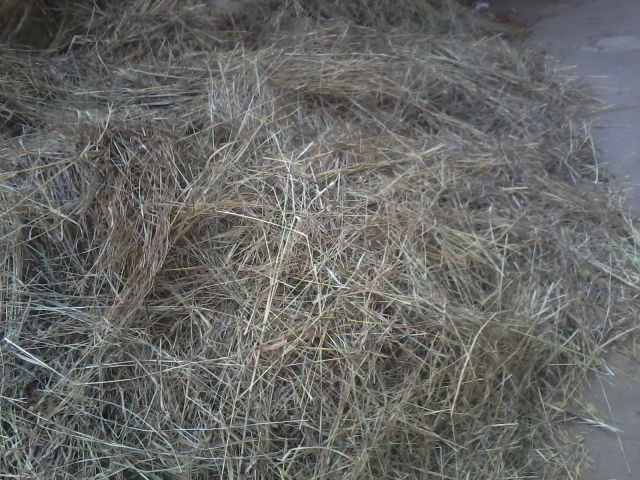 clover hay good in fiber or not
Question
kancha hay
hello maam. is clover hay ri
clover hay good in fiber or not
Question
kancha hay
hello maam. is clover hay ri
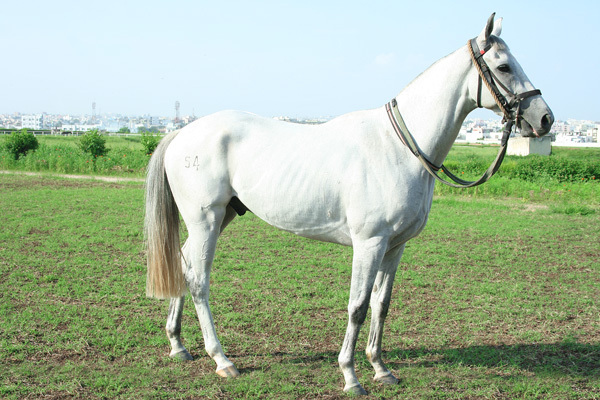 guessing the horse weight seeing it
Question
guess weight
hello maam. this is a thor
guessing the horse weight seeing it
Question
guess weight
hello maam. this is a thor
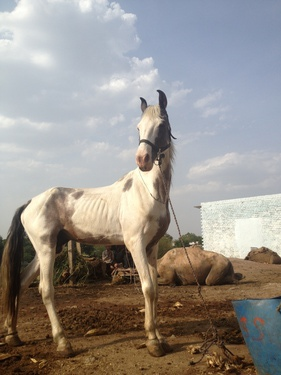 improving body condition
Question
horse
hello maam, how can i improve the
improving body condition
Question
horse
hello maam, how can i improve the
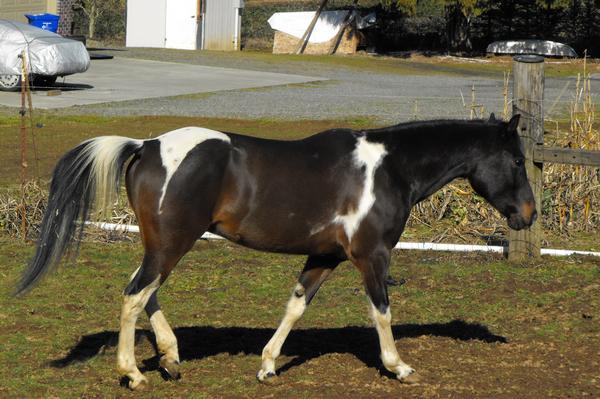 loss of appetite
QuestionElliott
QUESTION: i have a question abou
loss of appetite
QuestionElliott
QUESTION: i have a question abou
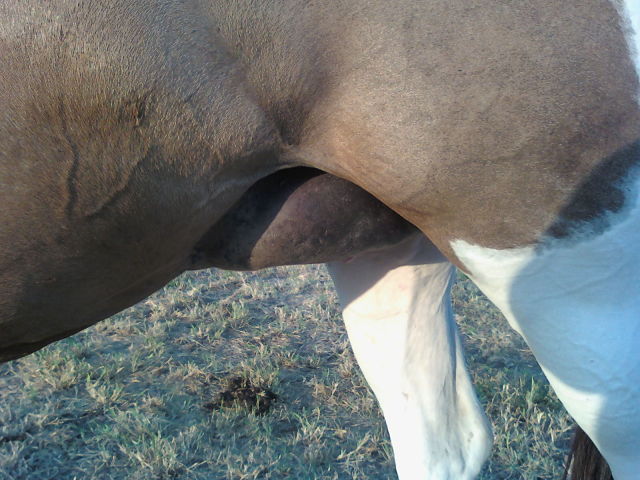 What could my horse be allergic to?
Question
Blue
I have a 14 year old paint mare that just
What could my horse be allergic to?
Question
Blue
I have a 14 year old paint mare that just